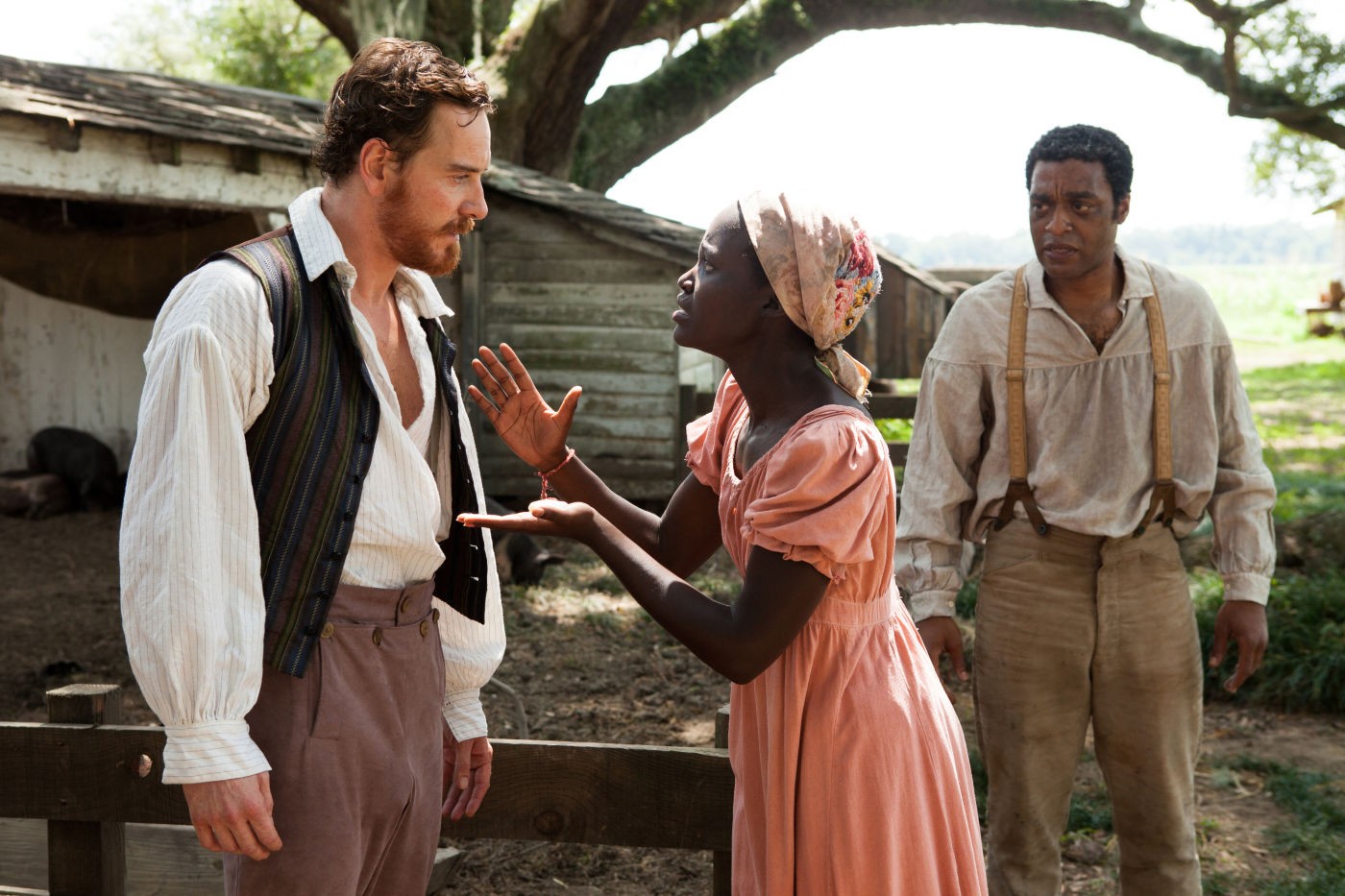REVIEW: '12 Years a Slave'
The very construction of a movie means that the filmmakers are picking and choosing from moments in time. Certain visuals, sounds and words must be selected, and others must be thrown away. It’s the responsibility of the filmmakers to pace a movie in such a way that it matches, if not honours, its subject matter. With current cinema, the trend is often to cut quickly and advance the plot, in an effort to hold the interest of a distracted audience.
For a historical topic like American slavery, the concept of film pacing is perhaps more important than it would be in other works. A film that speeds through the violence and injustice of centuries of slavery diminishes the terrible impact of the institution, and downplays the lessons we can learn from it. We may begin to feel like slavery is a topic we can skim through in two hours, rather than a black mark in history that needs to be carefully examined.
One of the most important (and potentially overlooked) elements of Steve McQueen’s new film 12 Years a Slave is its rejection of popular film pacing. The picture is - aside from its solemn cinematography and powerful performances - a searing collection of long shots, following the hellish experience of a free New Yorker (Chiwetel Ejiofor) who is kidnapped and sold into slavery in the South.
We witness one man’s struggle to retain his dignity and his will to live, in the face of extreme injustice. That lengthy struggle is depicted without any specific labels or dialogue to help us understand how much time has passed. The title may hint at what will eventually happen to Solomon Northup, but until then, his enslavement seems to exist outside of time, a never-ending cycle of brutality and humiliation.
It’s quite possibly one of the most effective ways to represent slavery onscreen – a means of reflecting what must have felt like a perpetual condition for African Americans at the time. While Northup was among the lucky few to escape, millions more lived and died believing that they were consigned to a slave’s life – a feeling that may be impossible to capture in an artistic medium.
That’s not to say that 12 Years a Slave takes the form of some sort of cosmic, unfamiliar experience. Indeed, it’s still wholly recognizable as a film, one that alternates between gritty depictions of plantation life and oddly lyrical conversations between characters.
It’s the depictions of beatings, whippings and execution that are driving much of the discussion about the film so far. Those scenes are difficult to watch, but what’s arguably more threatening are the performances by actors like Michael Fassbender and Paul Dano, playing volatile Southern men who have the authority to kill a slave at a moment’s notice. The acts we see them commit against Northup and his fellow slaves are frightening enough, but the menace of what these characters may do next is just as terrifying.
Like Northup, what keeps us going through the heavier scenes are rare encounters with compassionate characters, played by Benedict Cumberbatch and Brad Pitt. These are men who are experimenting with abolitionist ideas, and yet remain afraid of what it will mean for their safety. Even so, the audience shares Northup’s relief when we run into these characters, as if we also need a sympathetic hand to continue on our way.
Meanwhile, McQueen’s visuals communicate when the characters cannot. Images of rivers and trees in the American South, set to droning, almost electronic music evoke a distant planet, as though this tragic tale is more suited to an alien landscape than to Earth. McQueen’s background as a video artist is easily felt in these sequences, as though we are no longer in a movie theatre but in a dark gallery, where the experience extends beyond a single wall.
12 Years a Slave has been described as “essential cinema” about slavery. I believe the film is essential, period. McQueen proves that we need more films like this – movies that do not skim over history or chop out narratives where convenient, but seem to incorporate the unknowable – time itself. 12 Years a Slave gets four stars out of four.
What did you think of the film? Did it jump to the top of our Oscar contenders list, or did you find the violence took you out of the film and distracted from its message? What other historical topics would you like to see Steve McQueen tackle? Join the discussion in the comments section, and if you liked this review, share it with your friends and followers! You can also check out my recent reviews by browsing through my archive of recent releases.
-




